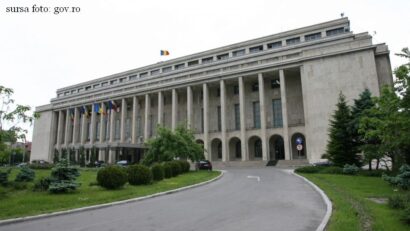Opinions on Romania’s economy
The European Commission has warned Romania about its swerving from the medium-term budget objectives last year

Daniela Budu, 23.05.2017, 12:45
The European Commission has warned Romania that in 2016 it swerved significantly from the medium-term budget objectives and that this year there is the risk of another deviation. The Commission expects Romania this year to have a budget deficit of 3.5% of the GDP and of 3.7% next year, above the 3% EU level, given the envisaged pay rises and tax cuts. The Brussels officials are worried about the enforcement of the unified pay scale law triggering an increase of spending much above what the government can afford.
That is why the Commission recommends that Romania use any additional revenues to slash the budget deficit and also take measures for a better tax collection and for fighting illegal work. The warning has also been forwarded to the EU Council which might call on the authorities in Bucharest to straighten out the problem until October 15th so as to avoid sanctions. It is the first time that the Commission makes use of such a warning actually laid down in European treaties. Romania’s president Klaus Iohannis has responded to the Brussels warning pointing out that the government is responsible for avoiding economic imbalance. Klaus Iohannis:
“It is important that everybody and lawmakers in particular should understand that not only economic stability, but also budgetary stability is extremely important. This stability is absolutely necessary and the government is responsible for planning next years’ budgets and the spending for instance on wages so that this important balance should not be endangered.”
The leader of the Social-Democratic Party, Liviu Dragnea is dissatisfied with the European Commission’s recommendations to Romania and believes that the Commission applies a double standard to our country, demanding that this country enforce austerity, even if it has the biggest economic growth in the European Union. The Social-Democrat leader argues that it is necessary for the Romanians’ wages to go up so that they may no longer leave the country, which would involve bigger budget expenses. He has given the example of Spain and France, which were not sanctioned when they exceeded the 3% deficit threshold.
On the other hand however, Liberal senator Florin Citu has explained that the European Commission applies the same standards to all member countries exceeding the budget deficit and has warned that the enforcement of the unified pay scale law will deepen that deficit. The governor of the National Bank, Mugur Isarescu said that the country’s macro-economic situation was among the best in the last 27 years, but there were bigger risks in the current period. (Translated by A.M. Palcu)






























